‘Socialism has not failed’—forum on China’s Cultural Revolution
“We can say with confidence: Socialism has not failed. The counter-revolutionaries seized power from the proletariat. We just have to take the power back and we will!” So ended Prof. Pao-yu Ching’s presentation at a forum to celebrate the 50th anniversary of the Great Proletarian Cultural Revolution in China. The celebration was held on May 29, 2016 in Amsterdam. Prof. Ching and Prof. Jose Maria Sison were the main speakers.
Prof. Ching is an internationally known author on socialist development and capitalist restoration in China. Prof. Sison is the chairperson of the International League of Peoples’ Struggle and the founding chairperson of the Communist Party of the Philippines.
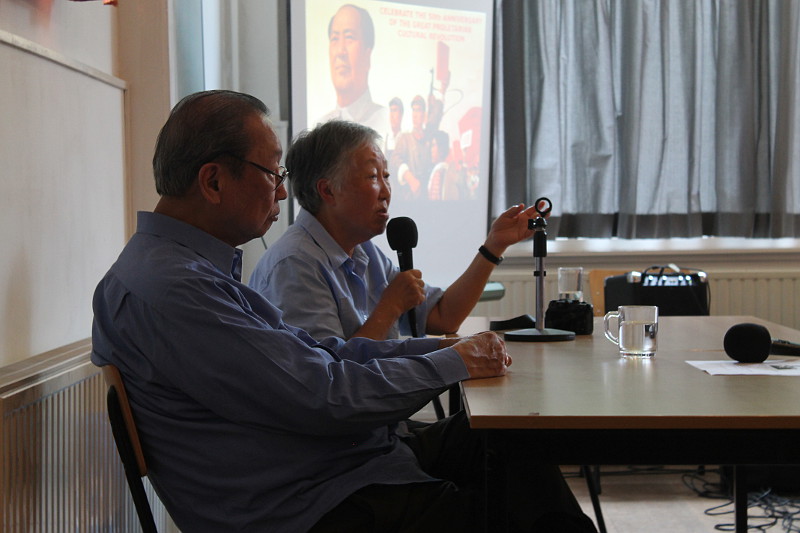
Professors Jose Ma. Sison and Pao-yu Ching are the main speakers in the Amsterdam forum on the 50th anniversary of the Great Proletarian Cultural Revolution. The forum, held at the Nassaukerk Social Hall on 29 May 2016, was co-organized by the People’s Resource for International Solidarity and Mass Mobilization (PRISM) and Revolutionaire Eeenheid. Photo by Kenji Sario
The commemoration was sponsored by the People’s Resource for Intrnational Solidarity and Mass Mobilization (PRISM) and the Revolutionaire Eenheid (Revolutionary Unity).
Pio Verzola, Jr., Executive Director of PRISM introduced the forum with a message of greetings and a brief explanation of the work of PRISM.
Prof. Ching stated that there is indeed reason to celebrate the GPCR half a century after its launch because the GPCR is as relevant today as it was in 1966.
The GPCR provided 10 additional years for the Chinese people to develop socialism and demonstrate its superiority. China’s socialist construction from 1956 to 1976, a period of merely 20 years, showed that socialism was not just an abstract concept but a shining example of what could be accomplished when the proletarian class was in charge.
Prof. Ching stated that the Cultural Revolution made several unprecedented breakthroughs in the field of industry, education and the practice of the broadest and most comprehensive democracy whose impact proved to be essential in transforming a society during the socialist transition.
“The Chinese revolution and socialist construction transformed China from a poor underdeveloped country exploited by imperialist powers to become an independent country, free from foreign domination and exploitation,” said Prof. Ching. Unfortunately, the revisionists led by Deng Xiaoping restored capitalism in China and reversed all the changes and gains made during the Cultural Revolution. Since then, the Chinese people once again experienced the intensification of the oppression and exploitation as they are relegated to being a source of cheap labor.
Nethertheless, Prof. Ching is hopeful for the Chinese people, stating that the Cultural Revolution’s breakthroughs clarified and articulated the fundamenetal differences between socialist development and capitalism. It showed the concrete path to continuing class struggle during the socialist transition.
GPCR impact on the Philippine struggle
He said that while the world capitalist system is now afflicted by unprecedented crisis, the GPCR gives humankind the hope that socialism can be attained and developed until communism is achieved.
Filipino revolutionaries have welcomed and supported Mao’s theory and practice of continuing revolution under the proletarian dictatorship through the GPCR in order to combat revisionism, prevent the restoration of capitalism and consolidate socialism as in China from 1966 to 1976.
Prof. Sison stated: “The view of the Communist Party of the Philippines is that Chinese society has ceased to be socialist since it came under the dictatorship of the bourgeoisie through the successful coup of Deng and his cohorts in 1976. Since then, the bourgeoisie has taken over and changed the character of the ruling party despite the continued use of the name Communist Party.”
On the question of US-China relations, Prof. Sison cited that the relationship between the two powers in economic and security issues is one of collusion and contention. He pointed out that the US would never intervene in favor of the Philippines in the conflict with China.
Other anniversary highlights
During the open forum, members of the audience put forward interesting questions, which triggered discussions and clarification by the speakers. One asked about the connection of the Great Leap Forward and the Cultural Revolution. Another asked about how was it possible that Deng and his cohorts were able to restore capitalism in China despite the 10-year cultural revolution.
Other questions were more forward-looking, such as whether there was a comprehensive assessment of the successes and failures of the GPCR, if there is a mass movement to unmask those pretending to be communists, if there are still genuine Maoists within the Communist Party of China, and if they are in a position to overthrow the revisionists.
The cultural activists from the Linangan Cultural Network and Revolutionaire Eenheid performed numbers interspersed with excerpts from the musical film “The East is Red” that depicted the struggle of the Chinese masses as they crossed the Yangtze River during the final phase of the war of liberation. The performers raised the slogans “Unity is our strength!” and “Long live the revolution!”
The forum was concluded with the singing of The Internationale. This was followed by the book signing by Prof. Ching of her book, Revolution and Counterrevolution: China’s Continuing Class Struggle Since Liberation. ###

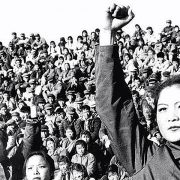
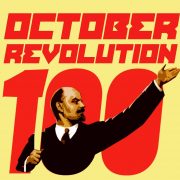
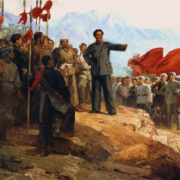
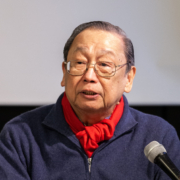


Leave a Reply
Want to join the discussion?Feel free to contribute!